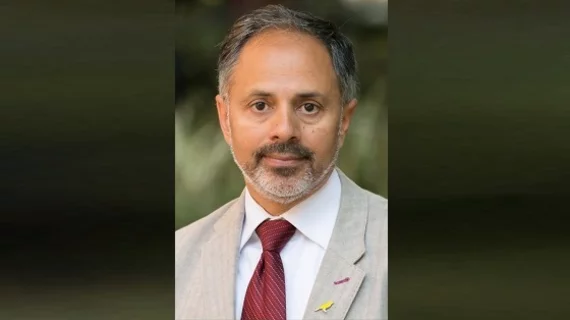Molecular imaging pioneer, beloved radiologist passes away
Sanjiv “Sam” Gambhir, MD, PhD, a pioneer in molecular imaging and dedicated father and husband, passed away Saturday, July 18, from cancer, according to the Society of Nuclear Medicine and Molecular Imaging.
He was known around the world for his work in the field. In addition to his dedication to early cancer detection, the renowned 57-year-old physician developed a number of FDG PET algorithms used for managing cancer patients, including decision models for the Centers for Medicare and Medicaid Services. He also directly helped achieve PET reimbursement.
“Sam's research and leadership improved healthcare for patients around the world, while at the same time inspiring a new generation of researchers to follow in his path,” SNMMI President Alan Packard, PhD, said Sunday. “With Sam's passing, we have lost not only a giant in our field but also a wonderful human being who we will long remember for his empathy, charisma, creativity and inspirational leadership.”
Gambhir completed his medicine and nuclear medicine residency at UCLA, where he later become vice chair of molecular pharmacology and director of the Crump Institute for Molecular Imaging before moving to Stanford University in 2003.
He has received a number of awards during his career, including the Outstanding Researcher Award from the Radiological Society of North America in 2009 and the Paul C. Aebersold Award for outstanding achievement in basic nuclear medicine science from SNMMI.
Stanford University School of Medicine, where Gambhir was chair of the department of radiology and a professor of cancer research, released its own tribute to the beloved physician. The university not only praised his professional achievements, but his dedication to his wife, Aruna Gambhir, and son, Milan, who passed away in 2015.
“Sam Gambhir’s departure from this world leaves us with deep sorrow yet profound gratitude that he made a vast impact on the world of science and humanity, to our school and department, and, [too], as an individual. Like many others with such impact and potential, Sam’s departure was too soon. We will all miss him dearly.”

